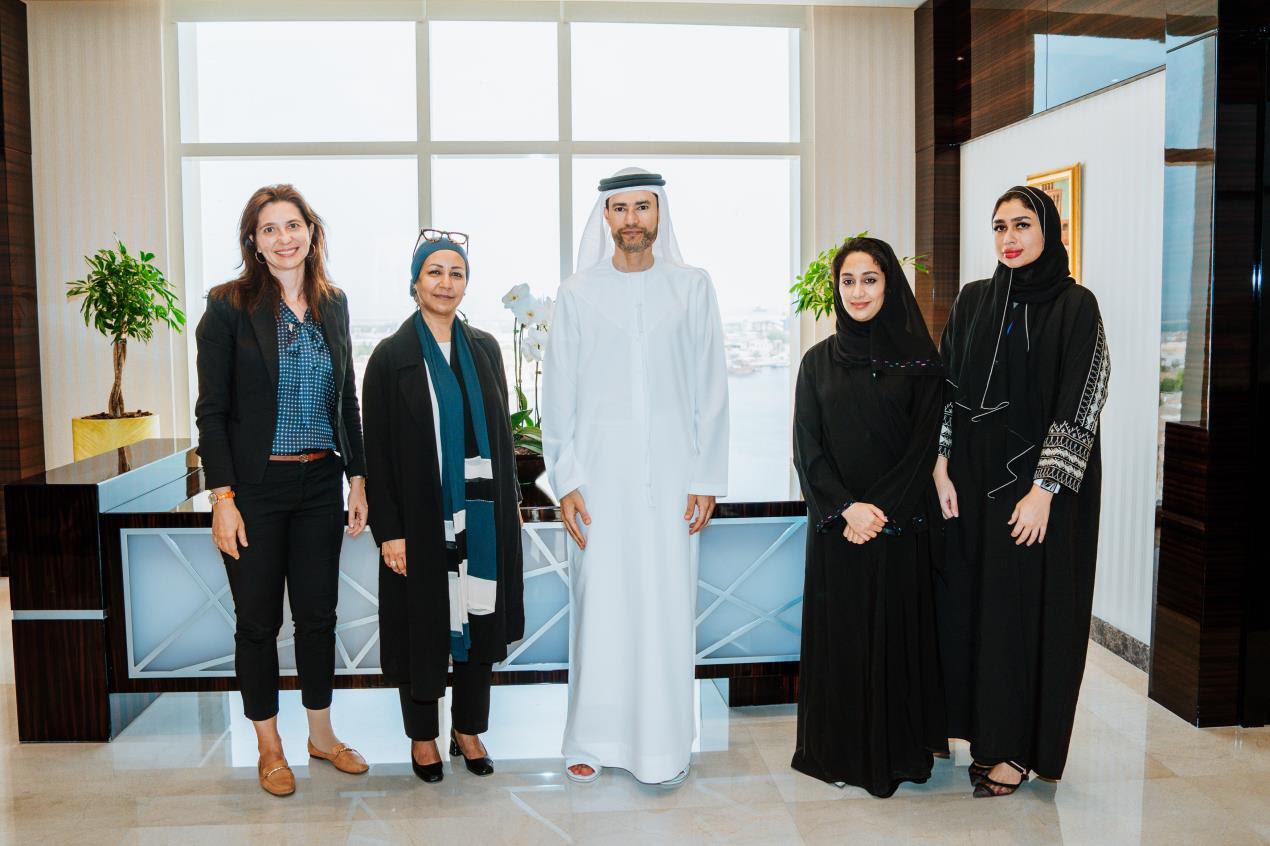(MENAFN- Mid-East.Info) His Excellency Mohamed bin Hadi Al Hussaini, Minister of State for Financial Affairs, met with Safaa El Tayeb El-Kogali, the World Bank's Country Director for the GCC countries, accompanied by Iva Hamel, the World Bank Representative in the UAE.
His Excellency welcomed the Country Director, expressing the UAE's appreciation for the World Bank's mission, strategic goals and global development work, and praising the efforts of the World Bank's employees, especially in the region.
His Excellency and El-Kogali discussed cooperation between the and the World Bank Group based on a firm, strategic and sustainable partnership, also addressing the potential for expanding partnerships on a regional and global level.
The discussions were in line with the directives and vision of the UAE's leadership, the strategic framework of the bank, as well as its objectives and priorities, which include improving the investment climate, strengthening policies and institutions, sharing knowledge, technical support and advisory services in the field of public debt and asset management, and developing innovative solutions for financial products.
The delegations also discussed how the World Bank can support the in achieving its strategic visions, strengthening the UAE's position as a global hub for climate tech innovation, and accelerating progress towards the goals of the Paris Agreement. They also addressed the role of financing in climate action, highlighting the importance of the World Bank's strategic partnership with COP28, which the will host in November.
The COP Presidency's action plan focuses on four pillars, including accelerating an orderly, responsible and just energy transition, developing climate financing mechanisms, improving lives and livelihoods, and ensuring inclusion. These pillars are designed to help produce tangible and effective results at COP28 in support of the goals of the Paris Agreement.
Ms. El-Kogali praised the World Government Summit 2024, which the will host under the theme of 'Shaping Future Governments”. The summit will foon developing tools, policies and models to shape future governments.
HE Al Hussaini also spoke about enhancing cooperation to fully leverage the World Bank's programs that are designed to support the development of national capabilities, especially considering the considers human capital to be the main engine for its national development. The country regards education as a strategic priority for the development of national talent and youth.
At the end of the meeting, the delegations discussed cooperation plans and future activities of the World Bank Group's office in the UAE. They noted the UAE's economic diversification efforts and work to enhance competitiveness as well as ease of doing business to increase the agility of the economy and create an attractive environment for local, regional and global investors. Such an environment bolsters investor confidence in the UAE's economic policies and attracts talent and foreign direct investment.
About the Ministry of Finance:
The Ministry of Finance of the United Arab Emirates was established as a sovereign ministry under Federal Decree No. (2) of 1971 to assume responsibility for implementing all financial policies related to economic development in the country, foremost of which is preparing and allocating the federal budget, managing the government's financial situation, and providing services to the government and business sectors, as well as individuals. His Highness Sheikh Maktoum bin Mohammed bin Rashid Al Maktoum, Deputy Ruler of Dubai, Deputy Prime Minister, serves as Minister of Finance, heading the UAE's economic and financial interests. His Excellency Mohamed bin Hadi Al Hussaini, Minister of State for Financial Affairs, aims to achieve the Ministry's strategic objectives.
The Ministry of Finance operates in accordance with a realistic yet ambitistrategic plan to perform its tasks and services in line with international best practices. The Ministry strives to achieve six key strategic goals, namely, enhancing financial planning in the Federal Government and the sustainability of public finances; raising the efficiency and effectiveness of budget execution, while managing the Federal Government's financial position and cash flows; overseeing the UAE's financial and economic interests at the international level; boosting the country's competitiveness in financial and economic fields; providing all administrative services in accordance with the highest standards of quality, efficiency, and transparency; and finally, promoting a culture of innovation in the corporate work environment.
The Ministry includes five main sectors: the government budget and revenue sector, tax legislation sector, government financial management sector, international financial relations sector, and support services sector. It also includes the Federal Debt Management Office, General Budget Committee, Government Financial Policy Coordination Council, and the Financial Restructuring Committee.




















Comments
No comment